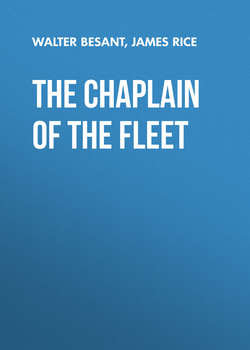Читать книгу The Chaplain of the Fleet - Walter Besant - Страница 10
Part I
WITHIN THE RULES
CHAPTER X
HOW THE DOCTOR WAS AT HOME TO HIS FRIENDS
ОглавлениеIf it be true (which doubtless will be denied by no one) that women are fond of changing their fashions and of pranking themselves continually in some new finery, it is certainly no less true that men – I mean young ones – are for ever changing their follies as well as their fashions. The follies of old men – who ought to be grave, in contemplation of the next world – seem to remain the same: some of them practise gluttony: some love the bottle: some of them the green table: some, even more foolish, pretend to renew their youth and counterfeit a passion for our sex. As for the fashions of the young men, one year it is the cocking of a hat, the next it is the colour of a waistcoat, the cut of a skirt, the dressing of a wig; the ribbon behind must be lengthened or reduced, the foretop must stick up like a horn one year and lie flat the next, the curls must be amplified till a man looks like a monstrous ram, or reduced till he resembles a monkey who has been shaved; the sword must have hilt and scabbard of the fashionable shape which changes every year; it must be worn at a certain angle; the rule about the breadth of the ruffle or the length of the skirt must be observed. So that, even as regards their fashions, the men are even with the women. Where we cannot vie with them is in the fashion of their amusements, in which they change for ever, and more rapidly than we change the colour of a ribbon. One season Ranelagh is the vogue, the next Vauxhall; the men were, for a year or two, bitten by that strange madness of scouring the streets by night, upsetting constables, throwing pence against window-panes, chasing belated and peaceful passengers, shouting and bellowing, waking from sleep timid and helpless women and children. Could one devise a braver and more noble amusement? Another time there was the mischievous practice of man-hunting. It was thought the work of a fine fellow, a lad of spirit, to lie hidden, with other lads of spirit, in Lincoln’s Inn Fields, or some such quiet place, behind the bushes, until there might pass by some unfortunate wretch, alone and unprotected. Then would they spring to their feet, shouting, “That’s he! that’s he! after him, boys!” and pursue the poor man through the streets with drawn swords and horrid cries, until, half dead, he rushed into some tavern or place of refuge. As for actors, singers, or dancers, they take them up for a season, and then abandon them for no merit or fault in them whatever; one day they are all for Church, and the next they applaud Orator Henley; one day they shout for Nancy Dawson, and the next for Garrick; one day they are Whig, and the next Tory; one year they brandish thick clubs, wear heavy greatcoats with triple capes, swear, drink porter, and go like common coachmen; the next, with amber canes, scented gloves, lace ruffles, flowered silk waistcoats, skirts, extended like a woman’s hooped petticoat, they amble along as if the common air was too coarse for them, mince their words, are shocked at coarse language, and can drink nothing less fine than Rhenish or Champagne, though the latter be seven shillings and sixpence a flask; and as for their walk, they go on tip-toe like a city madam trying to look like a gentlewoman. The next year, again, they are all for Hockley-in-the-Hole and bear-baiting. This year, the fashion was for a short space, and among such as could get taken there, to spend the evenings in the Rules of the Fleet, where, the bloods of the town had discovered, was to be found excellent company for such as liked to pay for it, among those who had been spent and ruined in the service of fashion, gaming, and gallantry.
